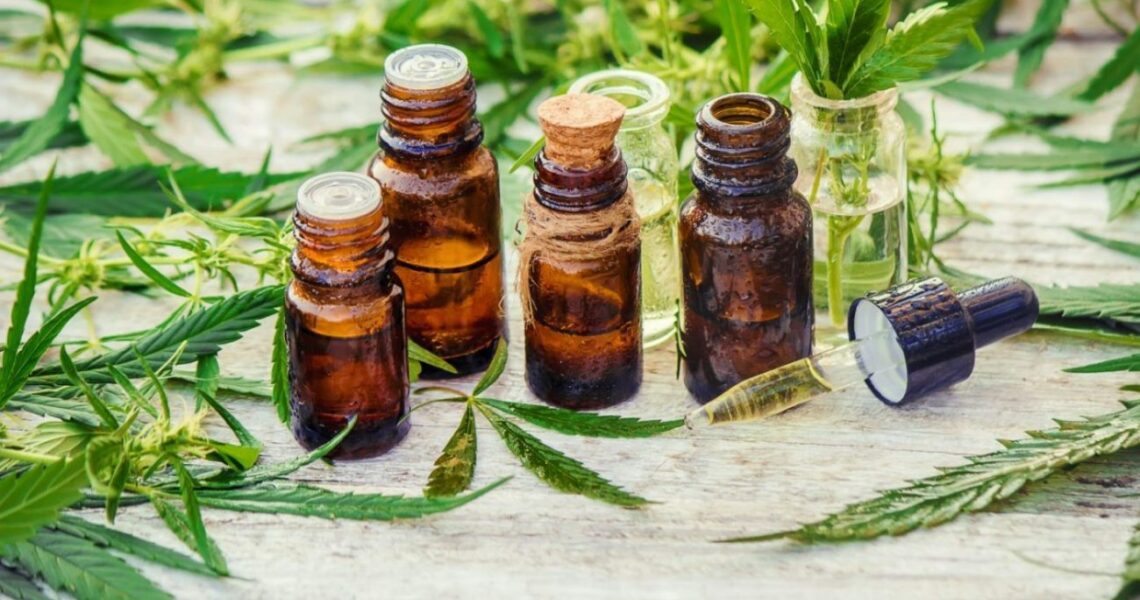Sage (Salvia officinalis) is an aromatic herb native to the Mediterranean region, known for its culinary and medicinal properties. Sage tincture supplements, derived from the leaves of the sage plant, offer a concentrated form of this herb’s beneficial compounds. Sage has a long history of use in traditional medicine systems around the world, and modern research continues to uncover its diverse health benefits. In this comprehensive guide, we’ll explore the multifaceted advantages of sage tincture supplements, drawing upon both historical use and contemporary scientific findings.
Historical and Cultural Significance
Sage has been revered for its medicinal properties for thousands of years and holds a prominent place in various cultures and traditions. Ancient civilizations such as the Greeks, Romans, Egyptians, and Native Americans valued sage for its healing properties and used it to address a wide range of health concerns. In medieval Europe, sage was considered a sacred herb and was associated with longevity, wisdom, and protection. Sage was traditionally used to treat digestive issues, respiratory ailments, cognitive decline, and various other health conditions.
Digestive Health
One of the primary benefits associated with sage tincture supplements is their potential to support digestive health. Sage contains bioactive compounds such as rosmarinic acid, flavonoids, and essential oils, which possess carminative, anti-inflammatory, and antimicrobial properties. Sage tincture supplements may help stimulate digestion, alleviate symptoms of indigestion, bloating, and gas, and promote gastrointestinal comfort. Additionally, sage’s bitter principles stimulate bile production, enhance liver function, and support overall digestive function.
Cognitive Function
Sage tincture supplements are often praised for their cognitive-enhancing effects. Sage contains compounds such as rosmarinic acid and salvianolic acid, which have antioxidant and neuroprotective properties. Research suggests that sage may help improve memory, concentration, and cognitive function, particularly in aging adults. Sage tincture supplements may support brain health by reducing oxidative stress, protecting against neurodegeneration, and enhancing neurotransmitter activity. Regular consumption of sage may help maintain cognitive sharpness and prevent age-related cognitive decline.
Respiratory Support
Sage tincture supplements may offer benefits for respiratory health and respiratory conditions such as coughs, colds, and bronchitis. Sage contains volatile oils such as camphor and cineole, which have expectorant, antiseptic, and anti-inflammatory properties. Sage tincture supplements may help relieve congestion, reduce inflammation, and promote bronchial relaxation, making breathing easier and more comfortable. Additionally, sage’s antimicrobial effects may help inhibit the growth of bacteria and viruses in the respiratory tract, supporting overall respiratory health and immune function.
Antioxidant Activity
Sage is rich in antioxidants, which play a crucial role in protecting cells from oxidative damage caused by free radicals. Sage contains flavonoids, phenolic acids, and other polyphenols, which possess potent antioxidant properties. Sage tincture supplements may help neutralize free radicals, reduce oxidative stress, and prevent cellular damage associated with aging, inflammation, and chronic diseases. Additionally, sage’s antioxidant activity may help support cardiovascular health, promote skin health, and protect against various degenerative conditions.
Hormonal Balance
Sage tincture supplements may help promote hormonal balance, particularly in women. Sage contains phytoestrogens and other compounds that have estrogenic effects and may help regulate hormonal levels. Sage tincture supplements may alleviate symptoms of menopause, such as hot flashes, night sweats, and mood swings, by supporting hormonal balance and nervous system function. Additionally, sage’s anti-inflammatory properties may help reduce inflammation associated with hormonal imbalances and menstrual discomfort.
Immune Support
Sage tincture supplements may help support immune function and enhance the body’s defenses against infections and pathogens. Sage contains bioactive compounds such as rosmarinic acid and flavonoids, which have immunomodulatory and antimicrobial properties. Sage tincture supplements may help stimulate the activity of immune cells such as lymphocytes, macrophages, and natural killer (NK) cells, enhancing the body’s defense mechanisms. Additionally, sage’s antimicrobial effects may help inhibit the growth of bacteria, viruses, and fungi responsible for infections and illness.
Skin Health
Sage tincture supplements may promote skin health and alleviate various skin conditions. Sage contains antioxidants and anti-inflammatory compounds that help protect skin cells from oxidative damage, reduce inflammation, and promote tissue repair. Sage tincture supplements may help soothe skin irritations, reduce redness, and support the healing of wounds and minor skin injuries. Additionally, sage’s antimicrobial properties may help inhibit the growth of bacteria and fungi responsible for acne, eczema, and other skin infections.
Usage and Dosage
Sage tincture supplements are available in concentrated liquid form and are typically diluted in water or juice before ingestion. The appropriate dosage may vary depending on factors such as the specific health concern being addressed, the concentration of active ingredients in the supplement, and individual factors such as age, weight, and overall health status. It is advisable to follow the manufacturer’s instructions or consult with a healthcare professional to determine the suitable dosage for optimal results.
Safety Considerations
Sage tincture supplements are generally considered safe for most people when used as directed. However, some individuals may experience allergic reactions or gastrointestinal upset with high doses of sage. Pregnant women should avoid consuming large amounts of sage, as it may stimulate uterine contractions. Additionally, individuals with certain medical conditions or taking medications should use sage tincture supplements cautiously and under the guidance of a healthcare provider.
Conclusion
Sage tincture supplements offer a wide range of potential health benefits, from supporting digestive health and cognitive function to promoting respiratory health, hormonal balance, immune support, and skin health. Rooted in centuries of traditional use and supported by contemporary research, sage continues to be valued for its therapeutic properties and culinary versatility. However, it is essential to use sage tincture supplements judiciously and under the guidance of a healthcare professional, especially for individuals with pre-existing medical conditions or those taking medications. With careful use, sage tincture supplements may serve as a valuable addition to a holistic approach to health and well-being.
- Benefits of Sarsaparilla Supplements - April 1, 2024
- Benefits of Sage Tincture Supplements - April 1, 2024
- Shop MaiaLife By Maialifeprotein-MaiaLife A Comprehensive and Unbiased Review of the Ultimate Shopping Destination - September 18, 2023

